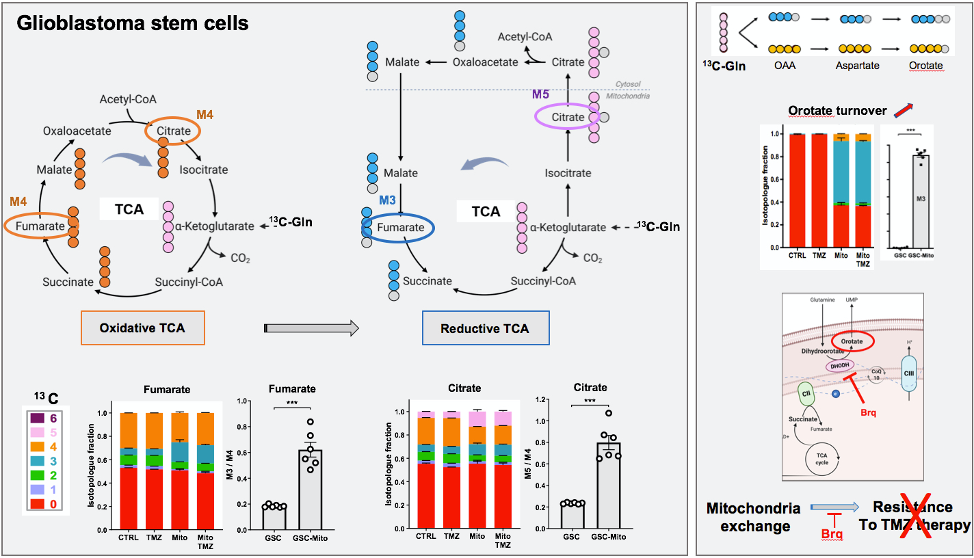INTERCELLULAR MITOCHONDRIAL EXCHANGES CONTRIBUTE TO GLIOBLASTOMA CHEMORESISTANCE BY REPROGRAMMING METABOLISM
Glioblastomas are highly aggressive brain tumors. Standard treatment consists of resection, followed by radiotherapy and temozolomide (TMZ)-based chemotherapy. Nevertheless, patient survival is very limited, due to the acquisition of resistance to treatment. Several factors contribute to this resistance, including the presence of cancer stem cells (GSCs) and their interactions with cells in the tumor microenvironment, including mesenchymal stem cells (MSCs).
Cells of the microenvironment have recently been shown to connect to tumor cells via tunneling nanotubes, exchanging various cellular components ranging from ions such as Ca2+ to organelles such as mitochondria, these exchanges leading to modifications of the response to therapy. However, until now, the mechanisms of this resistance were not known.
The group led by Marie-Luce Vignais in the team headed by Hugues Duffau and Jean-Philippe Hugnot has developed the Mitoception protocol, which enables the quantitative transfer of pre-isolated mitochondria in order to study their effects in target cells. It has shown that MSC mitochondria induce resistance of GSCs to TMZ. Metabolomic analyses were performed on glioblastoma resections before/after relapse to TMZ, as well as on GSCs. Metabolic flux analyses (13C-glutamine) showed a profound metabolic remodeling of GSCs, favoring the use of the TCA cycle in the “reverse” direction, i.e. in a reductive rather than oxidative manner. The turnover of orotate, a nucleotide precursor, is also dramatically increased. Inhibition of orotate production by Brequinar (Brq) abolishes TMZ resistance, suggesting a possible application in glioblastoma of this inhibitor, which is also in clinical trials for other cancers.

Acquired mitochondria trigger in GSCs a metabolic reprogramming and increased orotate turnover responsible for boosted resistance to TMZ.


